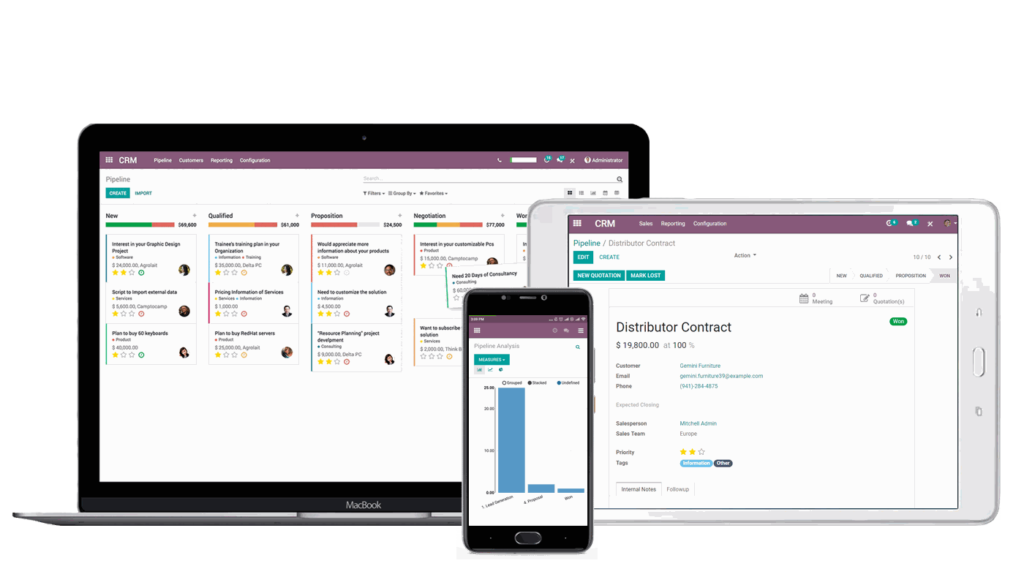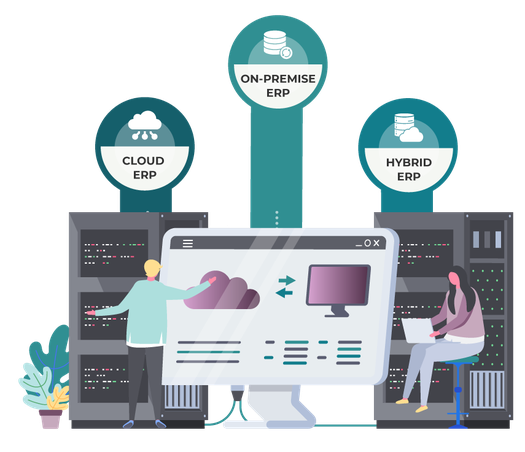

ERP works as a brain of a business. Multiple areas of a business and their processes are connected together, enabling the flow of the data between them.
It combines together various different reports and metrics across all business departments into the same view. With that, it’s very easy to see the health of the business, have a full view of what is going on, and how business resources are spent.
Today, ERP systems are critical for many businesses of all sizes and in various industries.


Brick-and-mortar or e-commerce, Odoo can handle & automate all retail operations from purchasing, inventory, sales & accounting processes.
All manufacturing businesses, small or large, can benefit from automating their production & making their supply chain more efficient.

Food production, wholesale & retail have their own specifics - Odoo helps you track the removal strategy & expiration dates to serve the freshest products.

When you are onsite, what matters is that you deliver excellent services. Manage your workdays from anywhere, on any device, track your working time, sell products and create invoices with one click.
If you can’t reasonably manage the data you’re collecting – or even worse, can’t collect – then an ERP can be more than interesting for you.
CRM stands for Customer Relationship Management & a CRM system is built to follow-up the satisfaction of the customers. In fact, whether it be thanks to better ad targeting or personalized communication, the main goal is to make customers happy. This is a software that is used by the front-office, meaning that only departments such as sales & marketing will use it.
Compared to a CRM software, an ERP can facilitate processes across diverse workflows – finance, HR, inventory management, etc. It is a system that encompasses the whole business while CRM is more targeted. In fact, it’s a tailored solution for customer-related matters. Nonetheless, an ERP – such as Odoo – can integrate CRM. In a nutshell, the main difference between these two is the scope – an ERP usually covers the functionalities of CRM & many others, while CRM focuses purely on the relationship management with your customers
As a matter of fact, the ERP system one company needs is not the same as another & therefore the cost is very dependent of the scope & customization required.